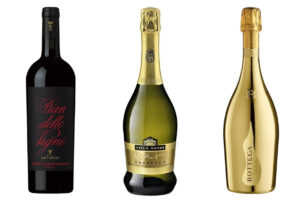Food and food safety, GMOs, animal feed, animal health, by-products, animal welfare, organisms harmful to the environment, phytosanitary products, organic production and PDO, PGI and Traditional Specialty products: these are the ten sectors on which controls were focused, which were found to be on the rise, numerically speaking, on the Italian food supply chain. The 2022 Annual Report to the National Multi-Year Control Plan (“Pcnp”), which can be consulted on the Ministry of Health website, illustrates the results of official controls carried out in Italy on the entire agrifood chain that, from primary production brings food to our tables (“From farm to fork”). The report is the result of the cooperation and coordination of the various actors involved, and therefore Regions and Autonomous Provinces, the Ministries of Agriculture and Environment, Customs and Monopolies Agency, Guardia di Finanza, Port Authority, Carabinieri Command for the Protection of Health, Carabinieri Unit for the Protection of Forestry, Environment and Agribusiness. The official controls ensured the safety of food and feed throughout the entire agrifood chain, from production to processing to distribution, including import.
In 2022, 142,662 official controls on operators through inspections and audits were carried out at approved establishments (it was 107,473 in 2021) and 284,375 at registered establishments (up from 235,861 in 2021). Regarding the number of establishments, 24,341 out of 35,154 approved establishments and 138,800 out of 1,425,489 registered establishments were inspected. From the inspections and audits conducted, noncompliances were recorded in 6,685 approved establishments (resulting in 8,216 administrative actions and 68 prosecutions) and 32,492 registered establishments/operators (resulting in 45,265 administrative actions and 430 prosecutions). For analytical checks on food and beverages, 46,974 samplings were carried out with an irregularity rate of 0.33%.
For microbiological contamination of food, 33,036 samples were taken for 66,504 analytical determinations made, of which 3% were non-compliant. For imports from third countries, in 2022, 40,932 consignments of animals, animal products and feed of animal origin from more than 100 third countries (-2.2% over 2021) and 187,807 consignments of food and feed of plant origin and MoC (+24.3% over 2021) were introduced into the EU through Italian Pcf (Border Control Posts, ed.). In 2022, 150 consignments of goods were rejected, accounting for 0.4% of the consignments submitted for import. In phytosanitary products, 2,691 inspections were carried out with inspections on 38% of resales in the country. At the level of infractions, the Regions/Autonomous Provinces detected 332, the Carabinieri Nas Command 625 and the Icqrf 15. The total percentage of noncompliances turns out to be very small on 2021 and, therefore, 7.5%. On organic production, the Icqrf carried out 6,819 inspections on its own initiative, resulting in 28 criminal reports, 288 administrative charges, 108 warning orders, 26 product seizures, with a total value of 240,000 euros. Delegated inspection bodies carried out 119,082 conformity checks, taking 6,631 samples, of which 727 were found to be irregular (11%). The incidence of detected nonconformities out of the total number of visits conducted was 24.4% for minor nonconformities and 3.6% for serious ones. For PDO, PGI and traditional specialty products, 189,587 operators were inspected of which 50,017 were found to be noncompliant. In the e-commerce sector, Icqrf’s law enforcement operations involved a total of 451 cases, of which 363 products for sale on marketplaces, 51 cases involved wine products, and 37 agri-food products for sale on websites and in businesses of foreign operators.
For PDO and PGI products, the Icqrf carried out 5,562 checks on its own initiative. The highest percentage of irregularities, mostly of a documentary nature, involved PGI products. There were 10,676 checks on DOCG, DOC and IGT wines. The highest percentage of irregularities was found in Docg products. Delegated control bodies carried out 180,567 controls, taking 30,893 samples, the report found that very low percentages of irregular samples were found (1.3%), including 1.2% in food and 1.8% in wine. In addition, a total of 45,817 checks were carried out regarding animal welfare on farms, non-compliance cases were found in 992 production places checked; 10,542 checks on animal protection during transport, 330 non-compliance cases were found for the different categories checked. In the field of animal registry, a total of 10,110 official controls concerning the identification and registration of cattle and sheep and goats were carried out with 934,887 animals checked and 2,255 farms/establishments presenting at least one case of non-compliance.
Moving on to wine specifically, there were 10,676 checks on Docg, Doc and Igt wines. Of these, 52.2% were Doc, 32.3% Igt and 15.5% Docg: the highest percentage of irregularities were found in Docg products (16.6%), ahead of Igt (13.7%) and Doc (13.2%). Analytical controls mainly involved Doc (55.6%) and Igt (34.8%) products, with a percentage of irregularities ascertained of 3.1% and 8%, respectively. Lower, however, was the percentage of analytical irregularities ascertained on Docg products (2.1%). In 2022, the Nas carried out 26,632 checks within the food chain; most of the irregularities, 30% of the checks carried out, were found in the catering (41%) and flour, bread and pasta (36%) sectors, the percentage under wines and spirits was 27% (1,015 checks and 273 non-compliant outcomes).
For the Carabinieri Command for the Protection of Agri-foodstuffs, which carried out extraordinary controls in 2022; the action of the Units resulted in the seizure of 5.3 million kilograms of agri-food products (3.6 million from the wine sector), with a countervalue of 5.9 million euros (3.4 million from the wine sector).
In the part of the Report devoted to Guardia di Finanza operations, it is reported that the Corps Units seized, in total, 1,672 tons of solid agri-food products and more than 14.6 million liters of liquid foodstuffs that were the subject of commercial fraud and/or adulteration. The largest seizures involved, in order, wines and sparkling wines (with over 14.5 million liters), cheese and dairy products (with over 536 tons), olive oil (with over 229 tons), cereals (with over 224 tons) and wheat (with over 213 tons). Regarding liquid products, most seizures were concentrated in Emilia Romagna (81.6,000 hectoliters), followed by Sicily (over 33,000 hectoliters) and Puglia (over 30,000 hectoliters).
Copyright © 2000/2026
Contatti: info@winenews.it
Seguici anche su Twitter: @WineNewsIt
Seguici anche su Facebook: @winenewsit
Questo articolo è tratto dall'archivio di WineNews - Tutti i diritti riservati - Copyright © 2000/2026







































































































































































































